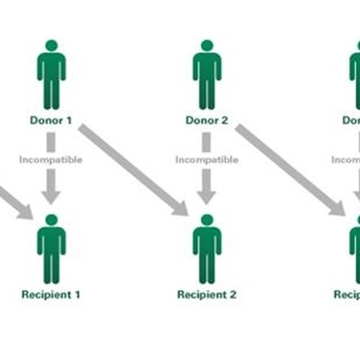
The Altruistic Donor
New Mexico man's act triggers nationwide chain of live kidney donations
"We've got a kidney!" exclaims Cynde Tagg, DPN, RN, executive director of Ambulatory Medicine Specialties for UNM Hospital.
She's talking about New Mexico's first living donor kidney transplant chain as part of the National Kidney Registry's Paired Kidney Exchange program. The program has matched more than 2,400 donors and recipients across the country.
It all started in late November, when an anonymous - and as staff describe him - humble New Mexican gave his kidney to a recipient in Colorado.
That recipient had a relative who was willing to give a kidney, but unfortunately was not a match. Following that first transplant, the Colorado recipient's relative donated a kidney to a patient in Wisconsin. The chain continued across the country and is finally returning back to New Mexico.
The New Mexico transplant is scheduled for January 3, ending a long and stressful wait for a local patient who has been awaiting a new kidney.
It's an exciting time for the recipient and UNM Transplant Services staff, Tagg says. "This means for our 260 patients on the waiting list is there is a possibility they will be transplanted sooner."
Time is of the essence though. "Our patients wait anywhere from three to five years," Tagg says. During that time their quality of life tends to deteriorate due to the growing need for frequent dialysis.
New Mexico patients often struggle with finding compatible kidney donors due to illnesses such as diabetes and kidney disease that are prevalent in the state.
Historically, kidneys were harvested from recently deceased individuals, but more recently, donations from living donors have grown common. The beauty of so-called altruistic donors is not only the gift of life they are giving but the fact that the donated organs last nearly twice as long, on average.
"Our altruistic donors are amazing," Tagg says. "This first transplant really showcases the impact they can have across the country to change the lives of recipients and their families."
If you are interested in becoming an altruistic donor here's what you need to know: the procedure is normally followed by a two- to three-day hospital stay and about 10 days out of work. From there life goes back to normal.
You can learn more about the program or becoming a donor by calling UNM Transplant Services at 272-3106.
